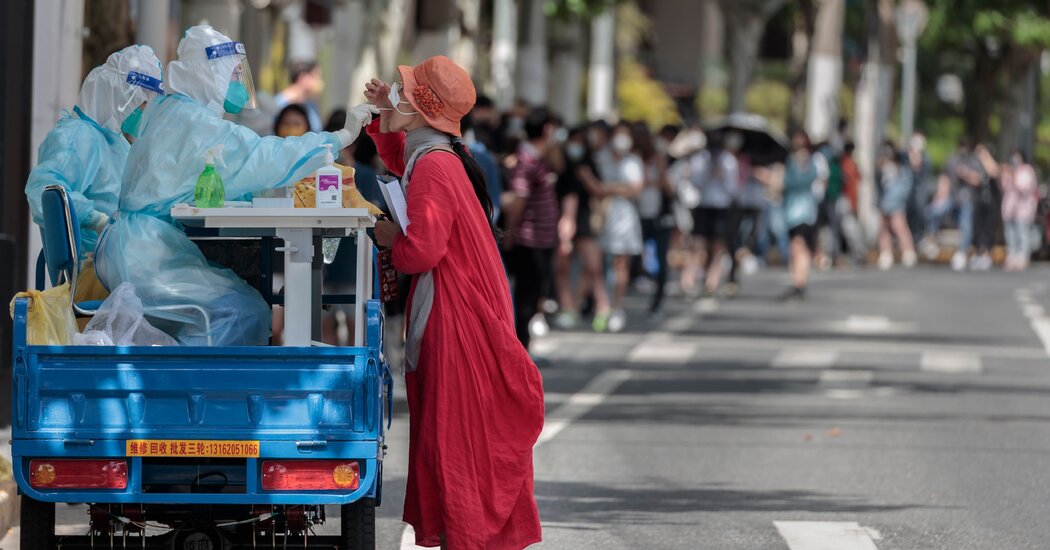Chinese cities and counties have moved to regular massive coronavirus testing even in the absence of a local Covid-19 outbreak, raising concerns about the economic toll.
The 99 million inhabitants of central Henan province will have to undergo PCR tests every other day by June. In the eastern province of Zhejiang, drivers are tested at highway exits before being allowed to enter. Beijing, which has a small outbreak, is one of the cities that now requires a test to get on the subway or enter a public place.
The “zero Covid” approach to contain the highly contagious Omicron strain threatens to increase economic stress and further irritate a population protesting the country’s strict lockdowns. Yet officials adhere to it. The strategy has appeared repeatedly in official announcements and state media in recent weeks.
In early May, Sun Chunlan, a Chinese deputy prime minister, said residents of major cities should be able to get PCR tests within a 15-minute walk of their homes. By mid-May, nearly 10,000 stands had been set up in Shanghai. But not all local governments can afford to do what China’s richest city is doing.
Regular mass testing in China’s larger and more developed cities, which would include about 500 million people, could cost more than 1.7 trillion yuan, or $255 billion, a year, equivalent to about 1.5 percent of the gross the country’s domestic product in 2021, according to an estimate by Soochow Securities economists in early May. The report spread through Chinese social media and was later censored.
A health official said testing doesn’t have to be so extensive everywhere.
The tests should target provincial capitals that are at high risk of importing infections and in cities with populations of at least 10 million, Guo Yanhong, a National Health Commission official, said at a news conference Monday. The test frequency should depend on the local situation, she said.
Still, five provinces and numerous cities, apart from major metropolitan cities such as Shanghai and Beijing, have said they are investigating regular PCR tests and other measures.
In the less affluent central provinces, strict containment and prevention measures have already taken their toll. Local authorities in Sichuan and Anhui have been calling for public donations in recent weeks to ease pressure on the supply of medical equipment.
There is no shortage of mockery of the new efforts on social media. On Weibo, the Chinese Twitter-like platform, many users suggested that coronavirus testing could slow economic growth, which has plummeted under lockdowns and travel bans.
In response, Hu Xijin, a former editor of the Communist Party tabloid Global Times, praised Henan’s test plan on Monday. He also reiterated the official line that living with the virus would never work in China and that regular PCR testing was the country’s best option.
“Please be polite and stop defaming nucleic acid tests by splashing dirty water,” said Mr. Huh.

